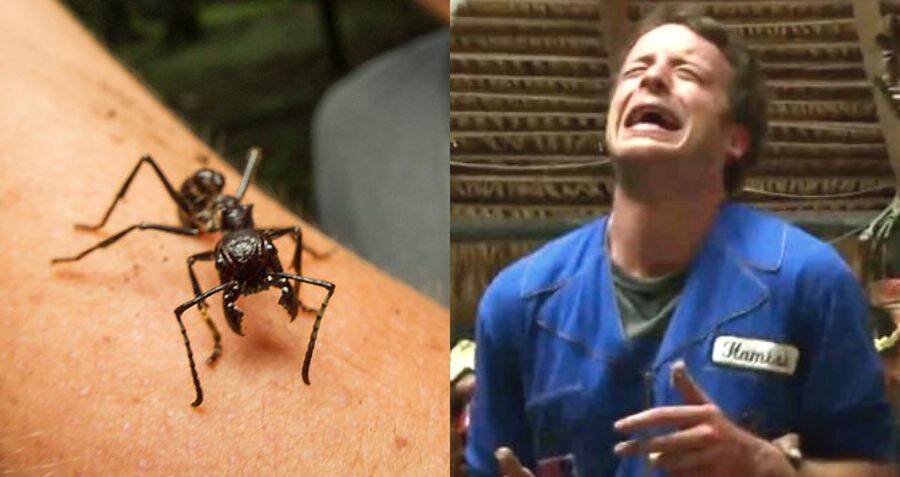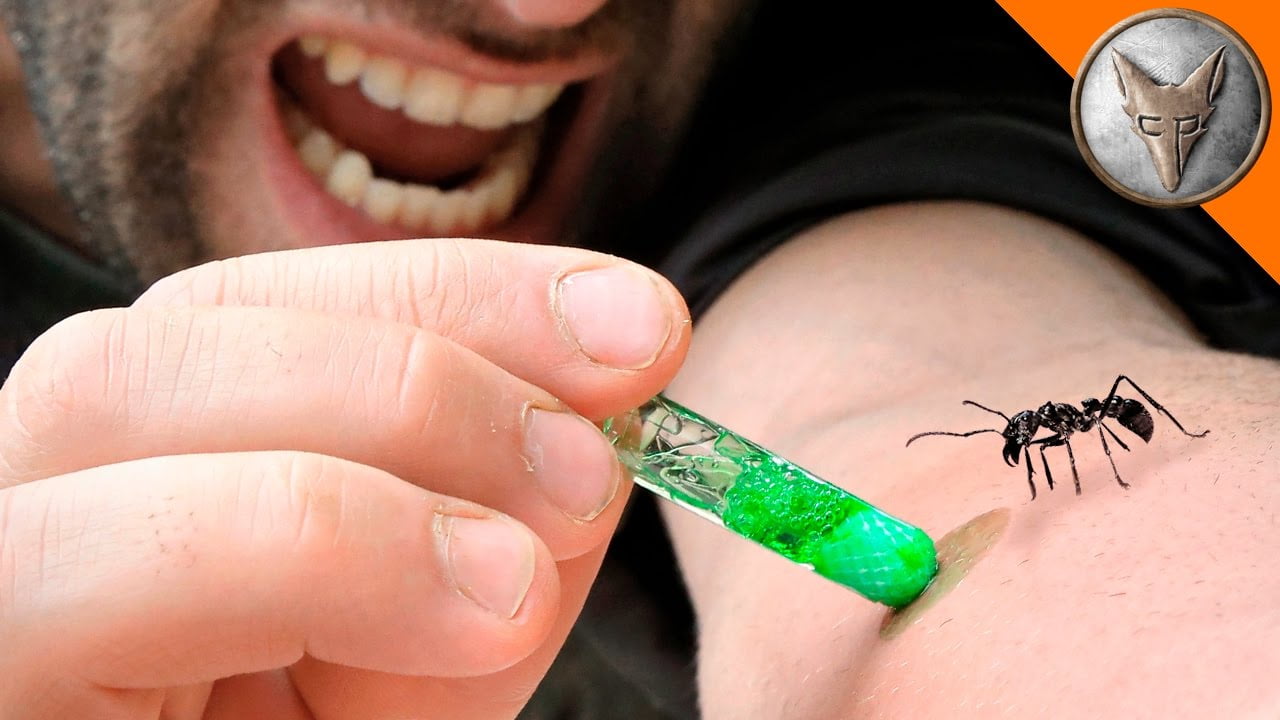If you encounter a bullet ant, apply a cold compress and wash the area with soap and water. Bullet ants are known for their excruciating sting.
If stung, the pain can be severe, causing swelling and discomfort. In such cases, applying rubbing alcohol can help alleviate the pain. Bullet ant stings can lead to various symptoms, and seeking medical attention may be necessary for severe reactions.
Avoiding these ants in the rainforest is crucial to prevent getting stung. Understanding how to handle encounters with bullet ants can help mitigate the risks associated with their potent sting.
Understanding The Bullet Ant
The Bullet Ant is well-known for its excruciatingly painful sting, earning it a fearsome reputation in the rainforests of Central and South America. Understanding the physical characteristics, habitat, and distribution of the Bullet Ant is crucial for preventing and managing encounters with this formidable insect.
Physical Characteristics
The Bullet Ant, scientifically known as Paraponera clavata, is aptly named for its potent sting, which is said to be as painful as being shot by a bullet. This large and robust ant measures approximately 0.7 to 1.2 inches in length and has a distinct dark brown or black coloration. The ant’s distinctive appearance and formidable stinger make it easily identifiable in its natural habitat.
Habitat And Distribution
The Bullet Ant is predominantly found in the humid lowland rainforests of Central and South America, including regions of Nicaragua, Honduras, and Paraguay. These ants prefer nesting in the base of large trees and are often encountered in the leaf litter and vegetation near the forest floor. Their widespread distribution across the rainforest ecosystem makes it essential for individuals to be vigilant when traversing these areas.

Credit: allthatsinteresting.com
Dangers And Symptoms Of A Bullet Ant Sting
Pain And Swelling
Bullet ant stings can cause intense pain and swelling at the site of the sting.
Other Symptoms And Complications
Aside from pain and swelling, individuals may experience nausea, dizziness, and fever as symptoms of a bullet ant sting.
First Aid And Home Remedies
In the event of encountering a bullet ant, immediate first aid is crucial. Apply a cold compress to reduce swelling, wash the area with soap and water, and consider taking an antihistamine to alleviate discomfort. These home remedies can be effective in managing minor reactions and itching.
When encountering a bullet ant sting, prompt first aid and home remedies are essential to alleviate the discomfort and manage the reaction effectively. Below are some recommended methods that can help mitigate the effects of a bullet ant sting:
Applying A Cold Compress
Using a cold compress can help reduce swelling and alleviate pain caused by a bullet ant sting. Apply the cold compress to the affected area for quick relief.
Washing The Affected Area
It is crucial to wash the site of the sting with soap and water to prevent infection and promote healing. Ensure the area is clean to avoid further complications.
Taking Antihistamines
For minor reactions and itching, taking antihistamines can help manage symptoms effectively. It is advisable to consult a healthcare professional for proper dosage and guidance. Remember, timely treatment is key to dealing with a bullet ant sting effectively. Implementing these first aid and home remedies can aid in a quicker recovery and alleviate discomfort.

Credit: www.theguardian.com
Preventing And Avoiding Bullet Ant Encounters
If you encounter a bullet ant, the best course of action is to remain calm and slowly move away from the area to avoid provoking them. It’s crucial to not make any sudden movements or disturb their habitat to prevent getting stung.
Steer clear of their paths and seek medical attention if stung.
Keeping A Safe Distance
The best way to prevent a confrontation with a bullet ant is by keeping a safe distance. These large ants are highly territorial and have a powerful sting. It is essential to avoid provoking or threatening them to prevent an encounter.
Avoiding Threatening Their Colony
To avoid being stung by a bullet ant, it is crucial to avoid threatening their colony. Bullet ants are protective of their nests, and any disturbance can trigger a defensive response. Always be cautious when exploring areas where bullet ants may reside and take care not to intrude on their environment.
Seeking Medical Attention
Encountering a bullet ant can be daunting. If stung, apply a cold compress and wash the area with soap. Take an antihistamine for relief from swelling and itching. To prevent stings, avoid any perceived threats to the ant colony.
Severe Symptoms And Complications
If you are unfortunate enough to encounter a bullet ant and get stung, it is important to be aware of the potential severe symptoms and complications that may arise. The sting of a bullet ant is regarded as one of the most painful in the insect kingdom, often described as feeling like being shot. The pain is so intense that it can cause victims to collapse or experience muscle paralysis. Other severe symptoms may include nausea, vomiting, dizziness, and difficulty breathing. It is crucial to seek immediate medical attention if any of these symptoms occur.
When To Visit A Hospital
When it comes to encountering a bullet ant and being stung, it is essential to know when to visit a hospital for medical intervention. While some minor reactions to the sting can be managed at home, it is advisable to seek professional medical help if severe symptoms persist or worsen. Here are some situations that warrant a visit to the hospital:
- If you experience difficulty breathing or develop a tightness in your chest
- If swelling from the sting spreads to other parts of your body
- If the pain from the sting intensifies and becomes unbearable
- If you have a history of severe allergic reactions to insect bites or stings
In these cases, it is crucial not to delay seeking medical attention. Prompt treatment can help manage and alleviate the symptoms and prevent any potential complications that may arise from a bullet ant sting. Remember, it is always better to err on the side of caution when it comes to your health.
Conclusion
Encountering a bullet ant can be a terrifying experience, especially considering the excruciating pain associated with its sting. While seeking medical attention is crucial in severe cases, it is also important to take precautions to avoid encounters with these ants whenever possible. Remember to stay calm if you are stung, and observe your symptoms carefully. By being aware of when to seek medical help and acting accordingly, you can ensure your safety and well-being in the face of a bullet ant encounter.
Frequently Asked Questions For What To Do If You Encounter A Bullet Ant
What Should You Do If You Get Bit By A Bullet Ant?
If bitten by a bullet ant, apply cold compress, wash with soap, take antihistamine for relief.
What Happens If You Step On A Bullet Ant?
If you step on a bullet ant, expect severe pain, swelling, and other symptoms. Apply rubbing alcohol for pain relief. If symptoms persist, seek medical attention. Avoid them to prevent getting bitten.
What To Do If You Encounter A Bullet Ant In The Rainforest?
If you encounter a bullet ant in the rainforest, it is best to avoid them entirely. Do not threaten their colony and use repellent won’t keep them away.
What Kills Bullet Ant?
Rubbing alcohol is an effective remedy to kill bullet ant. Apply it immediately to relieve pain within five minutes. Repeat if necessary.
Conclusion
In case of a bullet ant encounter, swift action is crucial. Administer a cold compress and clean the area promptly. Utilize antihistamines for minor reactions and itching. As a preventive measure, it’s best to avoid bullet ants and their colonies.
Remember, applying rubbing alcohol can subdue pain effectively. Swift responses can mitigate the impact of a bullet ant sting.

I’m MD Tanvir, and I bring years of expertise gained from working closely with pest control companies to the forefront. My journey in the industry has inspired me to launch Bug Battler, a platform aimed at equipping people with the know-how to combat pests autonomously. Through Bug Battler, I aim to empower individuals with practical insights to tackle pest infestations effectively.

